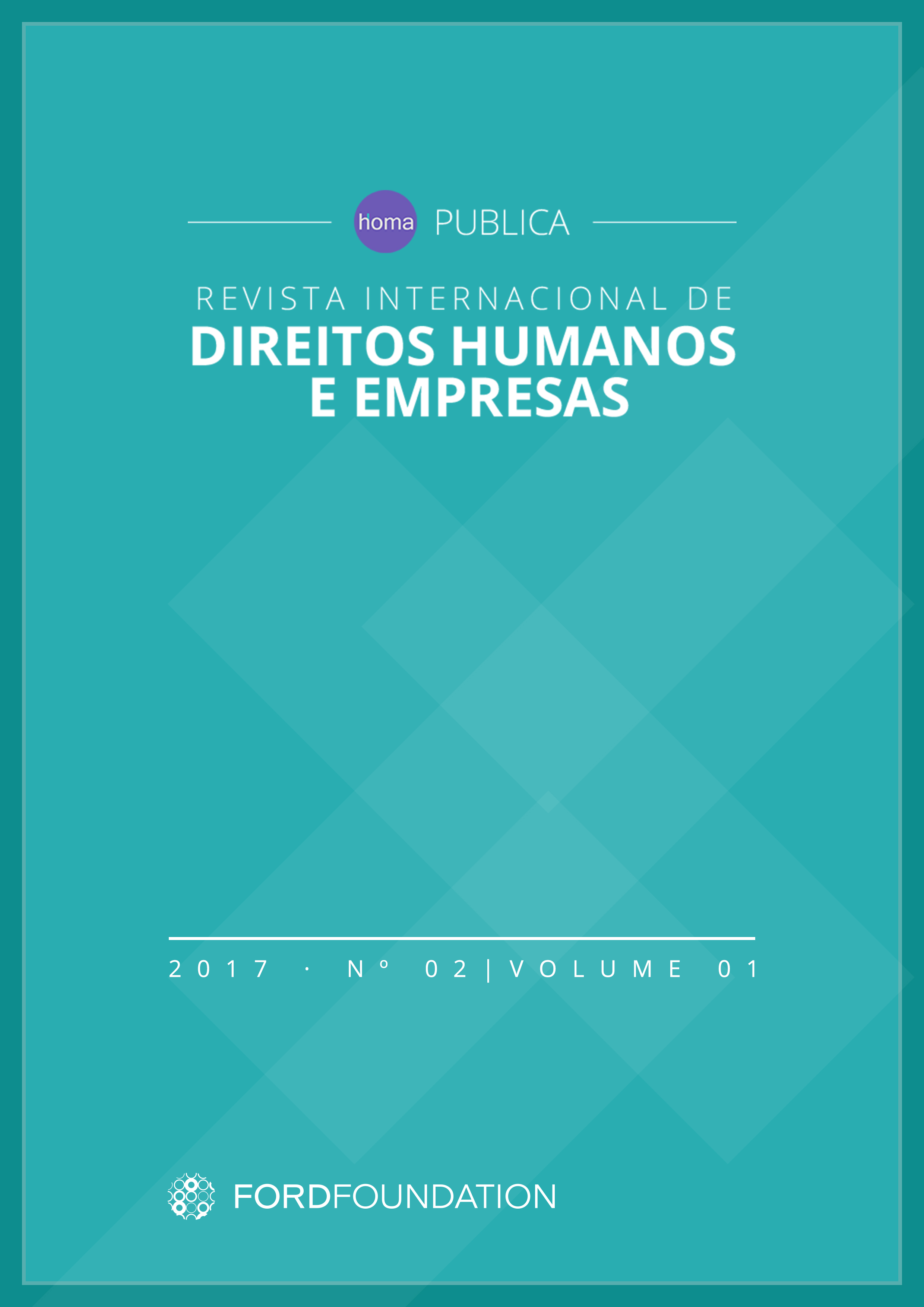A binding treaty on corporate responsability: a global solution to address the problem of corporate impunity – lessons learned from Aguinda vs Chevron
Publicado 2017-07-31
Palabras clave
- Environmental justice,
- Binding obligations,
- International Treaty,
- Corporate responsibility,
- Human rights
Cómo citar
Resumen
Extractive transnational corporations (ETC) can cause environmental harm and commit human rights (HHRRs) abuses in developing countries (DC). However, holding them accountable can become a real issue for their victims. There are different cases to reflect on this problem, but the one facing Ecuadorian communities against Chevron Corporation over oil pollution and HHRRs violations it’s turning twenty-four years old, bringing us important lessons on corporate impunity. After reviewing the way this case has developed, it becomes clear that states, international organizations, and civil society involvement is necessary; that corporate responsibility should be regulated at all levels (national and international); and that durable coalitions’ support from civil society organizations is fundamental to address the problem of ETCs causing environmental harm and committing HHRRs abuses in DC.
Descargas
Citas
LE BILLON, Philippe, Getting it done: Instruments of Enforcement. BANNON, Ian, COLLIER, Paul, ed. Natural Resources and Violent Conflict. The international Bank for Reconstruction and Development, Washington, The World Bank, 2003.
BERRON, Gonzalo. Economic Power, Democracy and Human Rights. A New International Debate on Human Rights and Corporations. Sur Journal. No.20. 2014.
BUENOS AIRES HERALD, YPF’s Chevron contract to be handed in today. September 22nd, 2016, http://buenosairesherald.com/article/221895/ypf%E2%80%99s-chevron-contract-to-be-handed-in-today.
CASTILLO, Yadira. El sesgo de debilidad a favor del inversionista extranjero como un límite a la responsabilidad internacional de las CTN. Doctoral thesis. Bogota. Los Andes University. 2013.
CORRAO, Ignazio. Report on corporate liability for serious human rights abuses in third countries. European Parliament, Committee on Foreign Affairs. July 19th, 2016.
DE RIVERO, Oswaldo. The New Economic Order and International Development Law. England: Oxford Pergamon press, 1980.
DEVA, Surya. Regulating Corporate Human Rights Violations. Humanizing Business. New York, Routledge, New York, 2012.
GOULD, Kathleen, Oil in Ecuador: The Traps of Transnational Capitalism. Vasaar College, Senior Capstone Projects. Paper No. 450. 2015.
KENNEDY, David. The Rule of Law, Political Choices and Development Common Sense. In Trubek and Santos, ed. The New Law and Economic Development: A Critical Appraisal. New York: Cambridge University Press, 2006.
LEVIN, Kelly, CASHORE, Benjamin, BERNSTEIN, Steven, AULD, Graeme, Overcoming the Tragedy of Super Wicked Problems: Constraining our Future Selves to Ameliorate Global Climate Change, Policy Sciences, Vol. 45, Issue 2, p-123-152, 2012.
RHYNE, Stephen, The Law and Politics of Sustainability. Berkshire Encyclopedia of Sustainability. Vol. 3. 2010
TINEKE, Lambooy, The corporate responsibility to remedy (3rd pillar Ruggie Framework) – Analysis of the Corporate Responses in Three Major Oil Spill Cases: Shell- Nigeria, BP- US (the Gulf), Chevron- Ecuador. Faculty of Law Research Paper No.2011-26. Oslo. University of Oslo. 2011.
WESTON, Christina. The enforcement loophole: Judgment-recognition defenses as a loophole to corporate accountability for conduct abroad. Emory International Law Review. Vol.25. 2011.
XUN WU, M. Ramesh, FRITZEN, Scott, et. al. The Public Policy Primer, New York, Routledge. 2010.
ZAITCHIK, Alexander. Sludge Match: Inside Chevron’s $9 Billion Legal Battle with Ecuadorean Villagers. Rolling Stone. August 28th, 2014. http://www.rollingstone.com/politics/news/sludge-match-chevron-legal-battle-ecuador-steven-donziger-20140828.
UNITED NATIONS. They Spoke Truth to Power and Were Murdered in Cold Blood, United Nations Special Rapporteur on The Situation of Human Rights Defenders, 2016. https://goo.gl/r8G8Bg.

